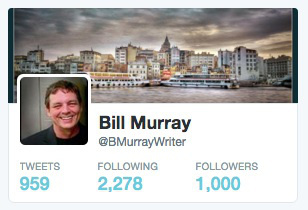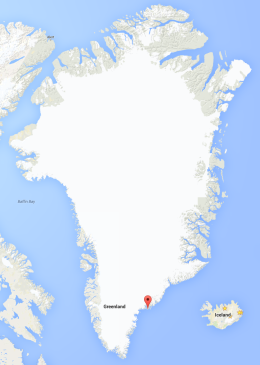Bill Murray's Blog, page 102
April 24, 2016
30 Years On
This week marks the thirtieth anniversary of the Chernobyl disaster. Three years ago we visited Chernobyl and that visit resulted in my second book, Visiting Chernobyl, A Considered Guide. No doubt we’ll be seeing a bunch of coverage this anniversary week, so for my part, here is an excerpt from the book, and here are some photos from EarthPhotos.com.
Some readers may know that my regular day job is doing voiceovers for radio and television. I have recorded Visiting Chernobyl and it is almost ready as an audiobook, narrated by me. I’m finishing up editing now, and it ought to be up on audible.com in the next couple of weeks.
Here is the beginning of Visiting Chernobyl, A Considered Guide:
1 KINDERGARTEN
The fence fell over itself, a cascade of wooden slats. It was hard to tell with everything covered by snow, but probably the trees between here and the building grew up since the accident. Down the road radiation signs stuck out of long earthen mounds.
This was Kopachi village, not far inside the ten kilometer inner zone around Chernobyl. They buried Kopachi, almost the whole village. Maybe that was a good idea in desperate days, but burying things forced radioactive material toward the water table. So once they thought twice they stopped burying to think things through.
At first they’d bury villages whole, especially across the border in Belarus. They’d dig pits, push entire houses in and cover them up. Special trucks, who knows where they came from, sprayed water up and down the streets all the time, because all the dust that burying kicked up was radioactive.
Belarus buried more than a hundred villages. Conscripts sent down here by Minsk did it. They filled up all the wells they could find with concrete trying to protect ground water.
It’s only ten miles (16 kilometers) from reactor 4 to Belarus, and on April 26th, 1986 the wind blew straight to the border. That meant between half and two thirds of all the radiation fell on
Belarusian farmers who lived on whatever produce they coaxed from the soil, and on the family livestock.
Authorities moved over a hundred thousand Belarusians in a hurry, to places with no housing and little employment. Twenty per cent of Belarus’s agricultural land was rendered useless.
Ten years on, farmers could breed horses and cattle for beef but not for milk, and 32,000 square miles, the area of South Carolina, remained too radioactive to use. That’s nearly a quarter of the country.
•••••
They commissioned studies and they anguished and eventually they worked out how to bury things more safely. They’d dig a pit and before they pushed anything in they’d line the bottom and sides with four feet of clay. Then they’d bury the bad stuff, seal up the top with clay and add soil and grass.
It was better than that mad bulldozing they did at first. One thing though, still today they have to keep trees off the mounds. Roots make the crypts leak.
They left two buildings in Kopachi, I don’t know why. Ice lurked up under the snow, you knew it, so you crept along step by step. Bum place to slip and get hauled out to Kyiv in the militia’s ambulance up at the checkpoint.
You had to bat away tree branches to get up the walk to the kindergarten. Nobody here to chop them down. Rose bushes intruded as prickly hazards up the walk. There were no foot prints, so nobody had been here since the newly fallen snow, a day or two. Icicles hung from the window frames. No glass.
Igor held his dosimeter to the ground. 6.04 microSieverts per hour.
The kindergarten in Kopachi was a solid old thing, a brick building with four columns, fading blue paint around the wood of the windows. All over the floor papers were scattered about, workbooks with activities, kid stuff like coloring and matching similar objects.
Somebody had brought a little metal tricycle with a metal seat inside, its rubber tires gone. A spoon sat on a low table and a green poster board, I think a science project, was propped up against the wall behind it. You had to skirt a charred spot in the floor where somebody once set a fire.
A cabinet, a tea cup, a grown-up’s coffee mug. A stuffed bear leaned back, propped against a chalkboard on the little tray where the chalk would be.
Three narrow wooden doors hung crooked, kind of defiant, open and upright. Cabinets listed down at the end of the hall. Somebody had spilled their insides out all over the floor, a pretty pointless thing to do. A bottle of glue sat alone on a shelf. A tree poked right through the window.
Down the corridor bunk beds filled up a whole room, cloth safety nets around the top bunks. The original 1986 covers and pillows. They must have been. Who’d smuggle in soiled blankets?
Paint peeled in palm-of-your-hand sized slices. A children’s book was titled Barvinok. In Ukrainian that’s ‘periwinkle.’
Two girl dolls, one in long johns, the other barefoot in a pinafore, lay on one bed’s lower frame. Snow piled up on the trees. One window still had glass.
People had posed things for pictures: a book opened to a particular page on a window sill, gas masks on the floor. After 27 years this wasn’t April 1986. People had been here. Workers brought in for the clean-up effort for example (they called them ‘liquidators’), took whatever they needed wherever they found it. Families came back now and again to salvage what they could of their own things. And Kyiv let contracts to salvage scrap metal, resulting in ripped out window frames and pipes.
And the looting. Igor lamented “bad people,” and he was so innocent, such a wide eyed academic, that you thought along with him, “Yeah, those bad, bad people.” Igor had no guile. He always called it “OUR government” like a boy scout. He was utterly unaffected and you had to love him.
The government cracked down hard on the looting. You didn’t want radioactive teddy bears finding their way to Kyiv after all, or hot batteries driving around in cars.
The kindergarten wasn’t exactly a freeze frame of April 26th, 1986, but little girls’ dolls, 80s style tricycles and rusted cribs in the school? They’ll still get to you, 27 years on.
•••••


April 19, 2016
Thank you!

Thanks to all 1000! Come with me in six weeks time to the northern tip of Newfoundland, Iceland and Greenland, ending in London for Brexit. Photos! Thrills! Spills!


April 8, 2016
Ten Friday Photos from Sydney, Australia
Sydney ranks on pretty much everybody’s Top Five Cities list and you can see why in this quick little photo tour.
Above Sydney from the Sydney Tower Eye.
Luna Park in North Sydney at dusk. That’s the Harbour Bridge in the foreground.
Here is sunset from Watson’s Bay, just outside town. There’s an old hotel there that has now labeled itself “boutique.” It’s not very big and it gets loud at night on weekends, but you can’t beat the fine view from the back terrace.
The Sydney Harbour Bridge.
Chess match in Hyde Park.
Another detail of Sydney from the Sydney Tower Eye.
Sydney from the suburb of Taronga.
The view back to town from Watson’s Bay.
Sunrise hits the cliffs at Watson’s Bay.
You know.
Click these to enlarge them. There are many more photos from all across Australia in the Australia Gallery at EarthPhotos.com. And a good weekend to you!


April 6, 2016
Parliamentary Protest Pun

Love this seemingly equivocal protest poster that I screen-grabbed earlier today from the Guardian. In Icelandic “thing” means “assembly,” and the parliament is known as the Althing, or Alþing in the local alphabet. So this very clever, mild-appearing protester is stealth-calling for dissolution of parliament.


March 23, 2016
Moscow Drone Tour
Five Minute GoPro Scooter Ride around Saigon
Last trip to Vietnam, in January 2014, we arranged a motorcycle trip, I strapped a GoPro camera on my helmet and this is what we saw. It’s about a five minute video. Enjoy it.


March 22, 2016
Worth Your Time
First, a thoughtful article by the Finnish writer Anu Partanen on why Americans shouldn’t dismiss the Nordic/Scandinavian economic model most visibly peddled these days by Bernie Sanders.
And second, the Norwegian series Occupied is great. Norway. Russian bad guys. International intrigue. What’s not to like? Check it out on Netflix.


March 20, 2016
Cuba and the USA. History.
On the occasion of the Presidential visit to Cuba, several photos from a visit to Havana in 2012. History.















All these photos may be made larger in the Cuba Gallery at EarthPhotos.com.


March 18, 2016
St. Helena Flights Soon May Actually Happen
It’s been a long time coming, but the new airport at St. Helena Island is just about ready for paying passengers.
St. Helena is WAY off the beaten path. If you’re the adventurous type, be one of the first.


Friday Photos – Greenland
It’s been a good week as we’ve finalized some travel plans for June. As I wrote just down there, we’ll be in London for the British exit referendum and, as it’s just around the summer solstice, while we’re there we’ll take a trip out to Stonehenge. We’re also planning stops in the French territory of St. Pierre and Miquelon, just off Newfoundland in Maritime Canada, and in St. John’s, Newfoundland’s capital. Then we’re up to Reykjavik for Iceland’s National Day on 17 June, and while we’re so close, we’re planning our second visit to Greenland, this time to the east coast, to the town of Tasiilaq, noted on this Google map:

The last time we visited Greenland I wrote about it as a chapter in my book Common Sense and Whiskey, and you can read the chapter here.
To mark our new visit, here are a few Friday photos from our previous trip, which was to the area around Disko Bay in the west.
Calving glacier at Disko Bay.
Midnight cruise in Disko Bay, Greenland.
Ilullisat town, Greenland.
Dog sled and husky near Ilullisat, Greenland.
Ilullisat, Greenland.
Click the photos to enlarge them, and there are more photos in the Greenland Gallery at EarthPhotos.com.


























